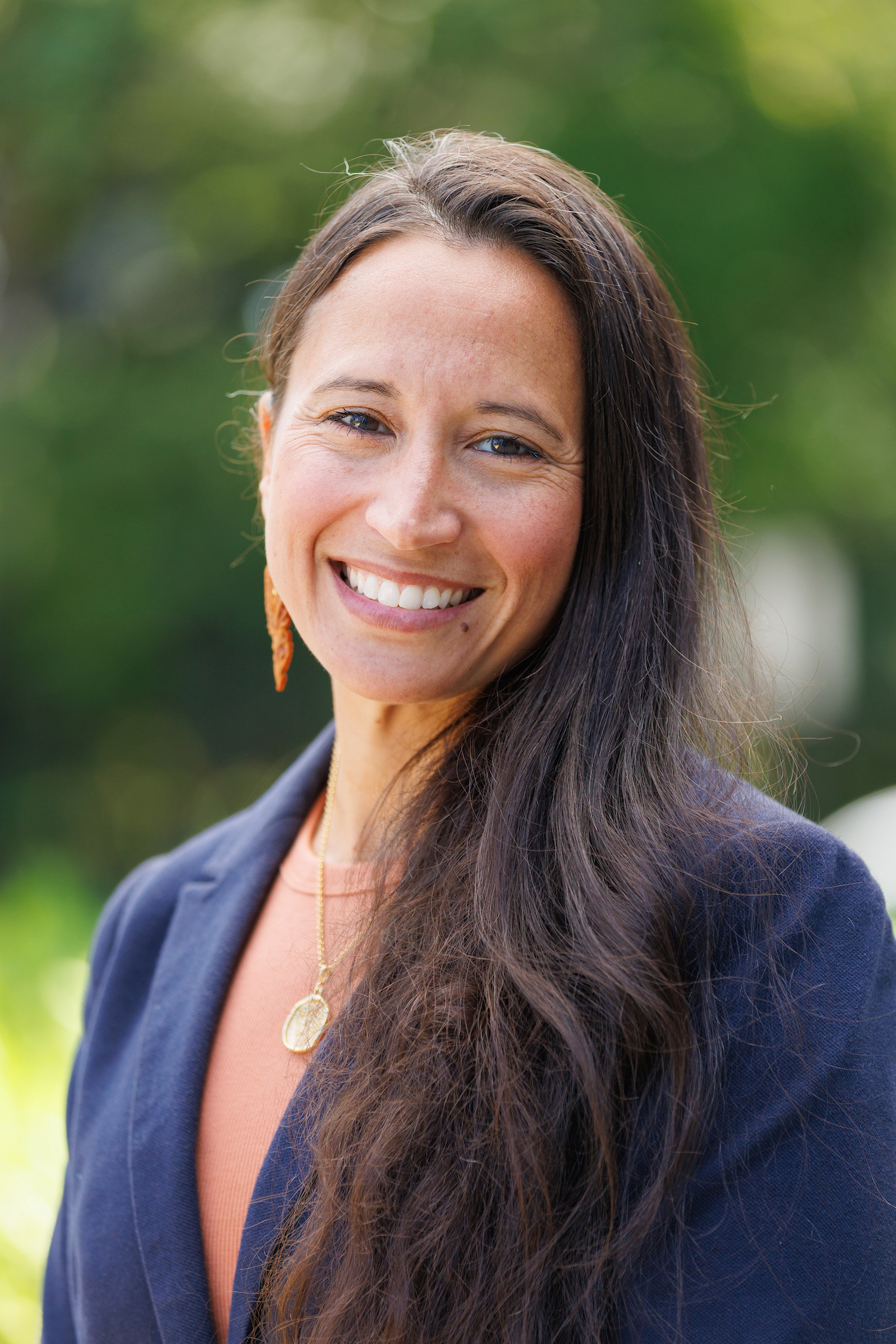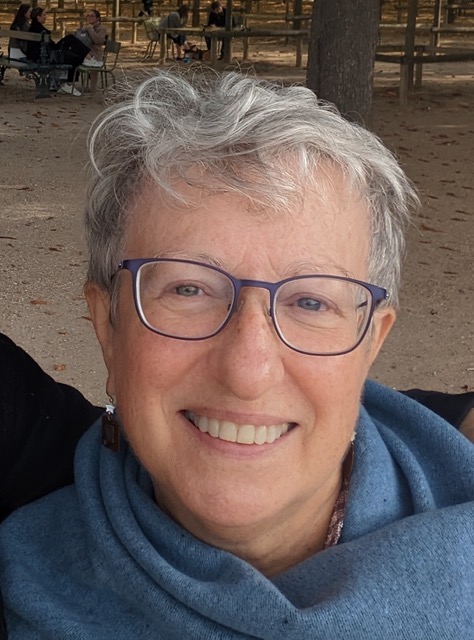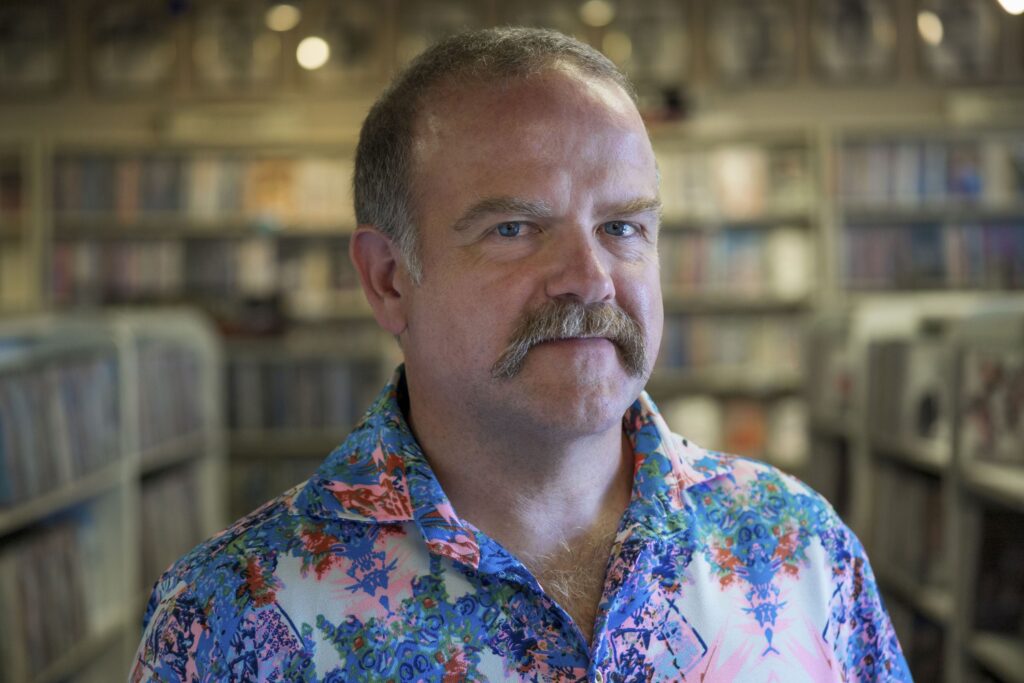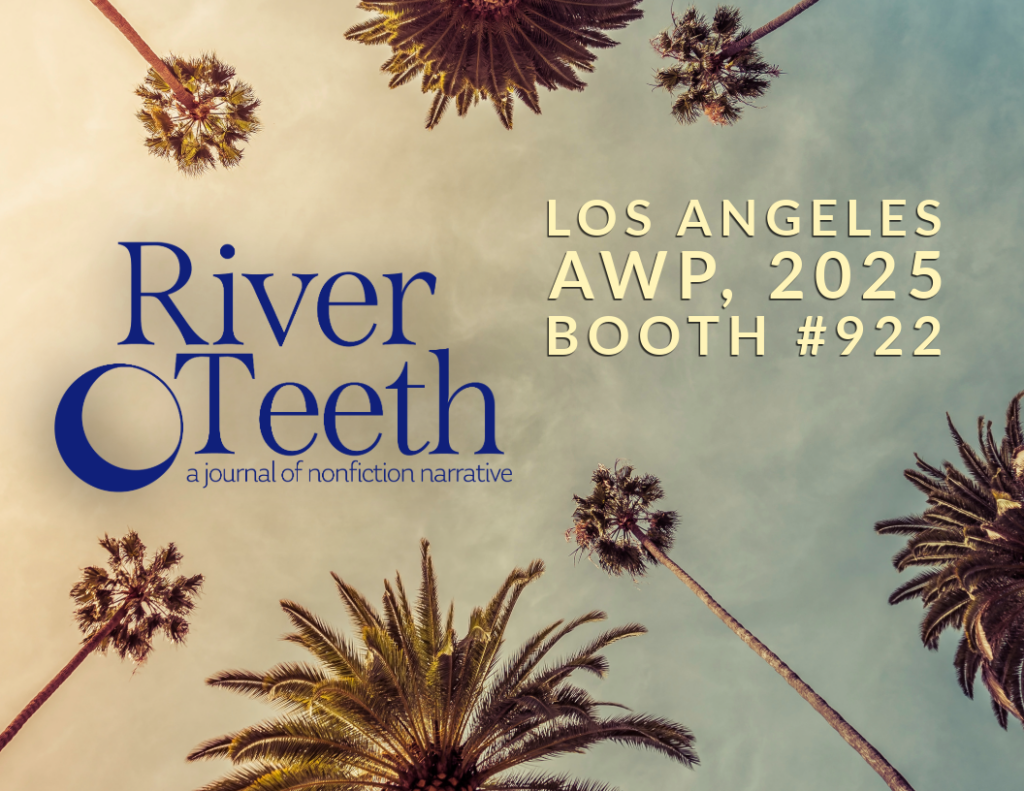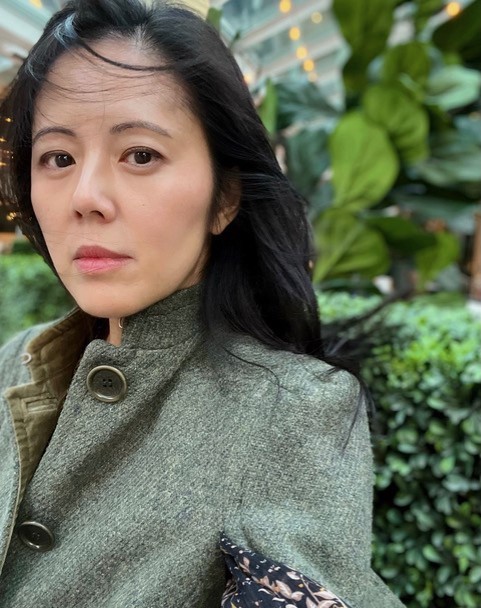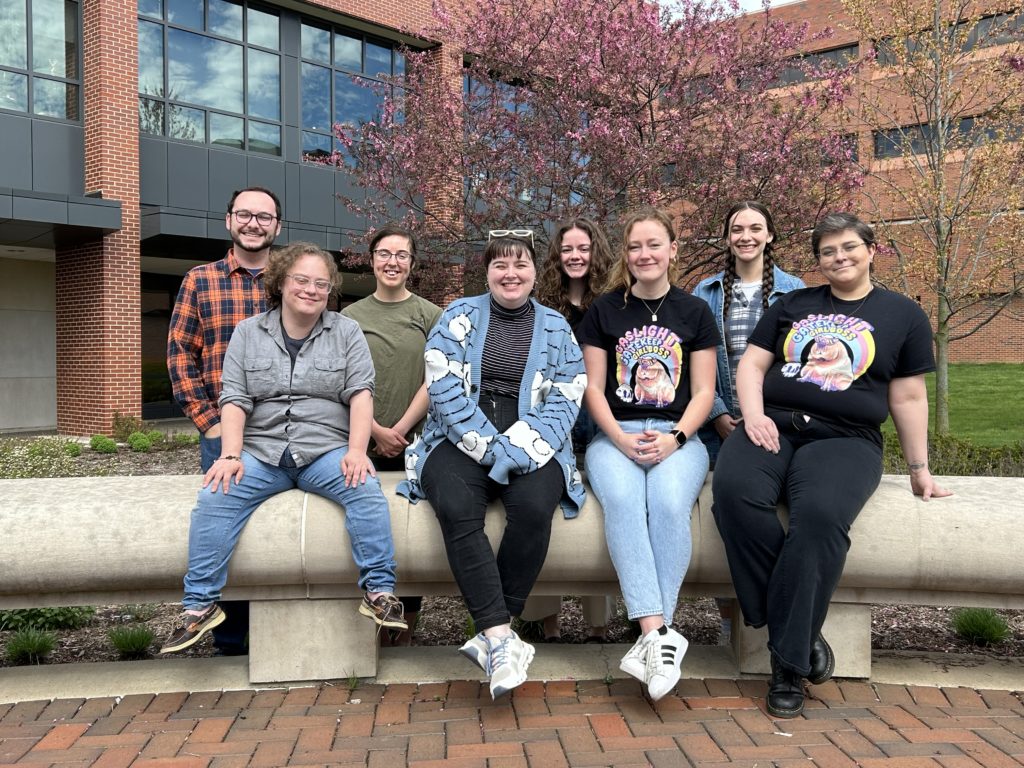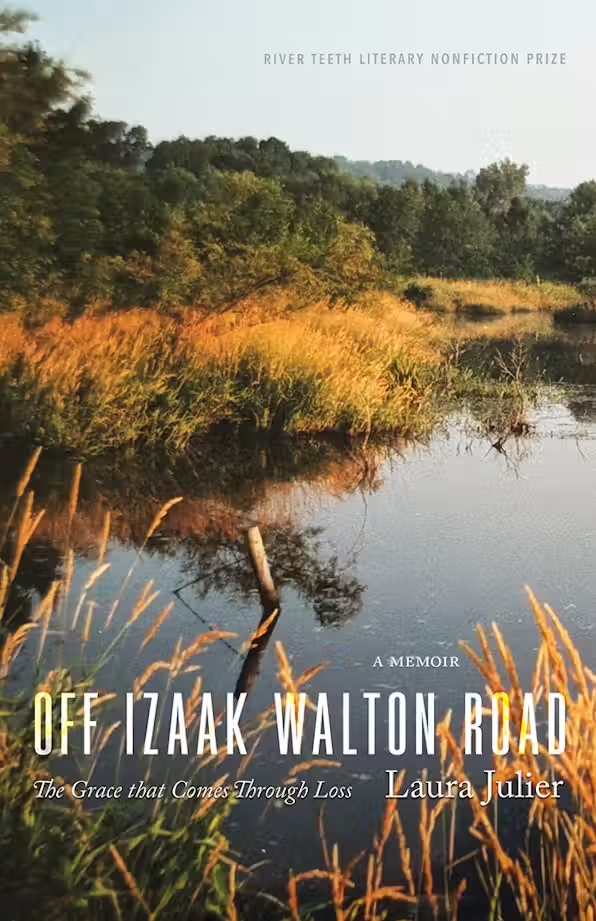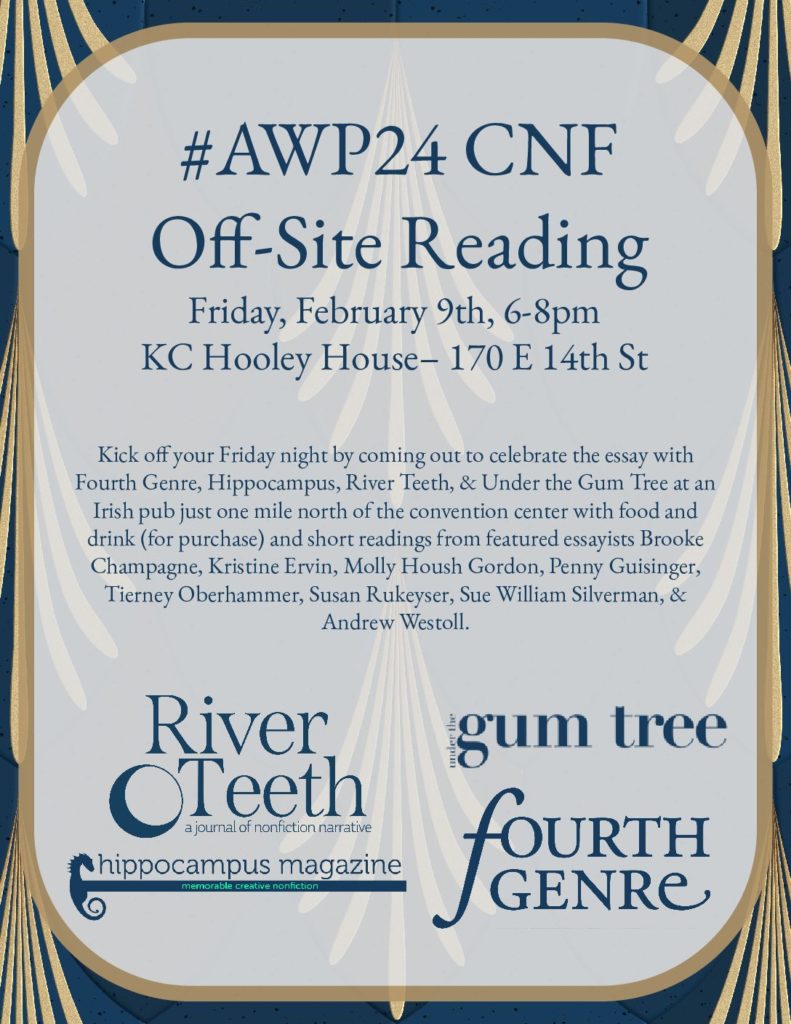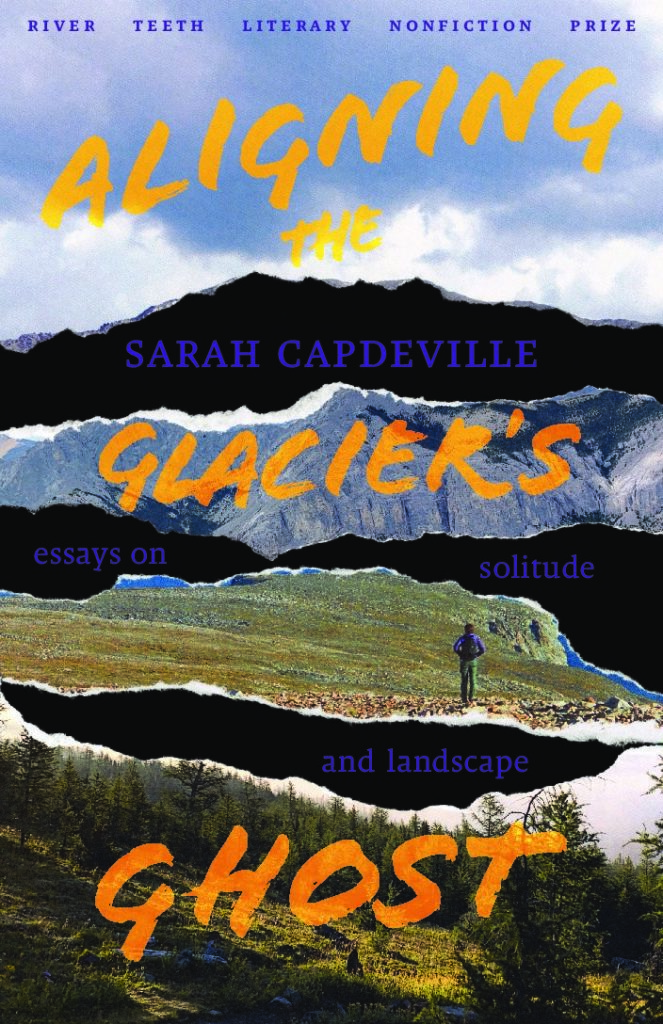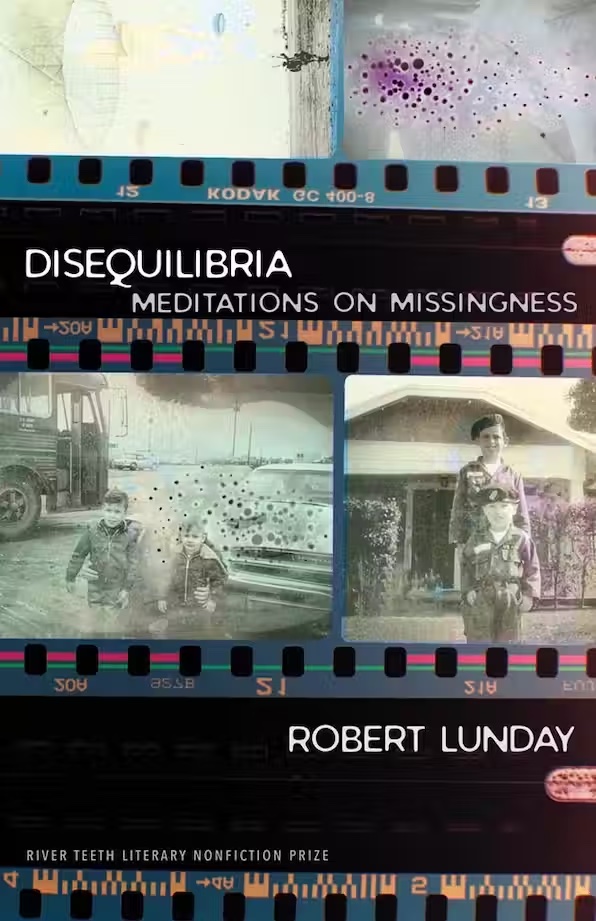By Jill Christman & Megan Lutes
Hello from the confluence of River Teeth here at Ball State University in Muncie, Indiana, on the kind of gorgeous fall day that makes a person want to leash up the dog and head out into the fields and woods–but not so fast because submissions opened on September 1st and we’ve got a lot of reading to do. Happily, we love to read.
Our passion for literary nonfiction is what got us into all this–well, that and a couple of charming, trailblazing writers and editors, two of my favorite people: Dan Lehman and Joe Mackall. Dan and Joe put out the first issue of River Teeth in 1999, and this spring, after twenty-five years of reading submissions, Joe and Dan made the sensible decision to retire for real–except, not quite, because they’ll still be screening entries for our Literary Nonfiction Book Prize. Take a few minutes with their final shared editors’ note here: it’s a beauty.
I can report from the River Teeth bank that the apprentice system still works, and before retiring, Joe and Dan taught us so many things about running a magazine–and one of those things was to ask the best people you can find to join your team. Go for it.
Joe can talk anybody into anything. That’s why I’m talking to you now, and I’m guessing that’s how Joe convinced essayist, teacher, and critic Thomas Larson to come on board as Book Reviews Editor in 2014. Tom wrote the first review himself in June 2014, and stayed with River Teeth for a full decade. Ten years and over one hundred reviews later, Tom is also ready for a change. Thank you, Tom, for caring so much about books and writers. While you may be free from those monthly deadlines, know that we’ll be calling on you for reviews! (Speaking of which, don’t miss Tom’s May 2024 review of Daniel Mendelsohn’s Three Rings, “The Circling Narrative–Its Origin, Its Design, Its Value,” and keep track of his goings on at his author site.)
Deciding that we wanted Brooke Champagne to be our next Book Reviews Editor wasn’t tough–but convincing her she wanted to take on this big job out of the goodness of her heart? I didn’t think that was going to be easy. I channeled my inner Joe Mackall and turned on the charm–and do you know what? The goodness of Brooke’s heart was huge. Y’all! She said yes. After years of circling each geographically in an essayistic way, I am so happy to be able to call Brooke my colleague. Brooke? Thank you thank you thank you. Apropos of gratitude, I bring you Megan Lutes, a Master’s student in our English Studies program, a former River Teeth intern, the first student to serve as Assistant Managing Editor, and, it must be said, the best dressed among us. Here is Megan in conversation with Brooke. Enjoy!
Jill Christman, Editor
“Look, the essay is weird”: An Interview with Brooke Champagne
By Megan Lutes
Brooke Champagne’s debut essay collection, Nola Face: A Latina’s Life in the Big Easy, was published by the University of Georgia Press in the Crux Series and was awarded a silver medal in southern nonfiction at the Independent Publisher Book Awards. (Be sure to read our recent book review by River Teeth editor Mark Neely: “Origins of a Singular Affinity,” Sept. 6, 2024.) Champagne’s essays have been selected as Notables in several editions of Best American Essays and have been honored with many awards, including the inaugural William Bradley Prize for the Essay. The recipient of the 2023-2024 Alabama State Council on the Arts Literary Fellowship in Prose, Champagne won the 2022 March Faxness National Championship Essay Tournament with her essay on Aimee Mann’s cover of the song “One.” She lives with her husband and children in Tuscaloosa, where she is an Assistant Professor of English in the Creative Writing MFA Program at the University of Alabama. Visit her website here.
ML: What drew you to River Teeth in particular? Was there a specific piece, issue, or book review that resonated with you and influenced your decision to join the team? Or do you have a specific history with River Teeth?
BC: In one person, Jill Christman. I’ve loved her writing and editorial work for years, and last fall she published my essay, “Champagne Blood,” in River Teeth 25.1. But in terms of River Teeth as a publication, I’ve read and admired (and taught) many essays printed in its pages over the years, along with the books published through their River Teeth Literary Nonfiction Book Prize. The journal is built by a great team, from the editors to the interns, and I’m so proud to be a part of it.
ML: How do you approach the process of editing nonfiction? Do you have a particular philosophy or method when it comes to shaping narratives while maintaining the author’s voice?
BC: Many moons ago I serve[d] as editor-in-chief for the New Delta Review while in graduate school at LSU and as of this August I’ve been teaching at the university level for twenty-one years. One thing I’ve learned is what not to do, and your excellent question points to it: I try never to bend the writer’s work to my personal aesthetic. My goal is to maintain the writer’s voice and general vision, while also honing in on how they might more artfully draw out their work’s meaning and purpose, in order to hopefully appeal to a wider audience. Whether I’m working with members of my writing group or my students, I try to edit less with my pen (or my typing fingers) and more with my voice. While I recognize it’s not always possible to do this, I try to have conversations with writers I’m working with to discern what their intentions were in any discrete piece. In this way, the editor is never in charge, but it allows the writer to elucidate where they intend to go and why.
ML: What do you think are the most pressing challenges in contemporary nonfiction today? How do you plan to address these challenges through your work at River Teeth?
BC: We really are a big tent in contemporary nonfiction, so the growth of the genre over the past few decades, and the many ways writers (and readers) can approach it is really heartening. However, I do have a slight concern that the contemporary essay is only written for (or read by) other essayists, aspiring essayists, or other highly literary people. Look, the essay is weird, and I know it’s never going to be for everyone. However, I hope through the work I’ll do at River Teeth, we can showcase the many different types of exciting CNF being written now, and simultaneously bust out of the academic walls like the Kool-Aid Man going OH YEAH. While new forms and approaches are exciting, I also believe in the human need to make sense of our lives by structuring into accessible, entertaining narratives (some of them, like the Kool-Aid Man, bringing succor and joy). The essays published in River Teeth consistently accomplish this, and I hope to continue with that tradition.
ML: Considering your background and experiences, how do you see your cultural or personal history influencing your editorial decisions? Are there particular themes, stories, voices, or perspectives you’re passionate about highlighting?
BC: Great sentences and interesting ideas will always get me first, identity and cultural histories aside. It’s a wonderful and difficult question to answer, because I have a penchant for the voice-y, the quirky cultural critique, the blistering family story. And yet, I also come to creative nonfiction to learn something wholly outside of my experience. In short, I both want to hear from marginalized voices about stories I’ve never heard before, or never heard in quite this way, and I also want to hear the unique take from any writer seeking to discover something about themselves or the world we’re living in that’s surprising, or funny, or heart-rending—or, hopefully, all of the above.
ML: What keeps you inspired and motivated in the world of literary editing? Are there any non-literary influences that shape your editorial style?
BC: When I help my students edit their work, regardless of whether or not they’re writing humorously, I often talk about the dictum of joke writing: the idea of cutting the fat off the jokes. In other words, what parts of any discrete piece of work absolutely need to be there, that contribute to the piece as a whole, and what maybe just looks pretty and might be cut? Or, maybe the fat is better positioned in a different place in the piece, and might make the whole more shapely. To clarify this metaphor, there is nothing wrong with fat in either jokes, writing, or the body. But in certain writing, particularly if you’re prone to excess, as I am, looking out for the fat and how it’s being used is essential for the health of the body. Or, as it were, the essay. The answer is a long-winded way of explaining to you why I’m not a comedian.
ML: What advice would you give to someone who is aspiring to enter the world of literary publishing, particularly in nonfiction? What lessons have you learned that you wish you knew when you started?
BC: Forming a writing community of one’s own, finding trusted readers of your work, is so important; my own writing group has kept me going over the years through the hundreds (thousands?) of rejections big and small that writers face. Also helpful is to be the most stubborn, bull-headed person possible. The only thing to make a person not-a-writer is to completely stop writing, just giving up. I’ve tried this a few times, and I find it amusing now that in the midst of “quitting writing,” I kept taking notes about how I wasn’t going to be a writer anymore. I was constantly insisting—in writing—the kind of person I was hoping to become. In other words, I was composing essays that were saying “I am not a writer.” In any case, I wish someone had told me never to quit, because it was futile. If you’re a writer, you’ll find a way to do it. It’s in many ways an absurd, maddening pursuit, yet I can’t think of any better way to live.

